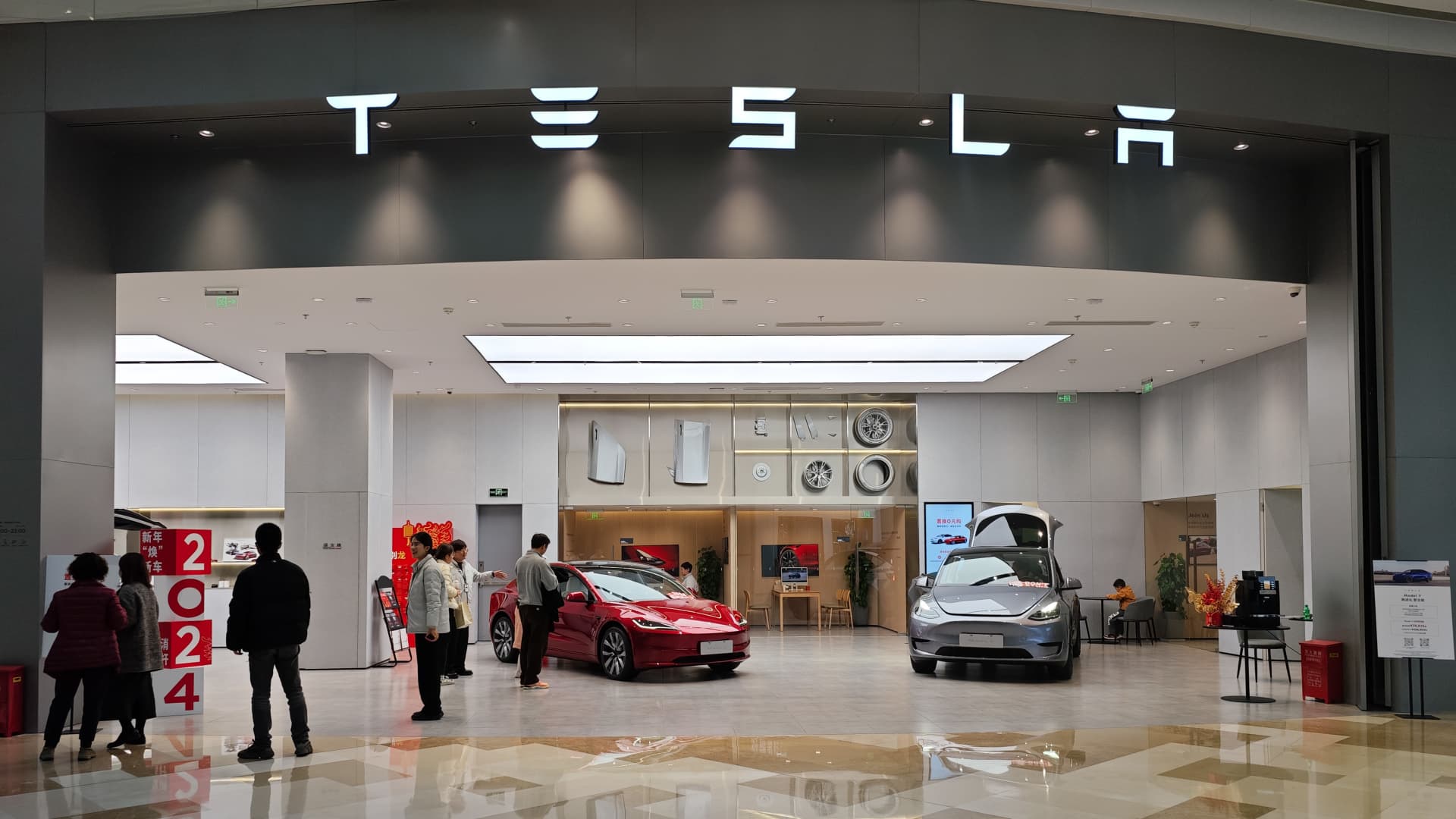News of electric car giant Tesla’s progress toward rolling out its advanced driver-assistance feature in China isn’t as groundbreaking as investors are treating it, according to a top tech investor.
Mark Hawtin, GAM Investment Management’s investment director focused on investing in disruptive growth and technology stocks, told CNBC’ “Squawk Box Europe” Thursday that such expectations were misleading — not least because Tesla’s Full Self Driving service doesn’t offer full autonomous driving.
“We should say what they’re doing — everyone’s talking about this full self-driving capability,” Hawtin told CNBC. “What they’re going to be able to do in China is what they already do in the U.S. or U.K., which is sort of this assisted-driver capability.”
On Monday, shares of Tesla rose sharply, notching their best day since March 2021, after it passed a significant milestone toward the launch of FSD in China. Local Chinese authorities removed restrictions on its cars after passing the country’s data security requirements, Tesla said Sunday.
This raised expectations that Tesla’s FSD would soon be available in China. Tesla shares are up 6.7% in the last five trading days, largely on the back of buzz surrounding its roadmap to bringing FSD to China — plus, comments from CEO Elon Musk about plans to start production of more affordable models in early 2025.
But Hawtin said that the company’s so-called Full Self Driving service lacks the qualities that would make it an example of truly self-driving technology.
“It’s by no means autonomous driving yet,” he told CNBC. He thinks that a version of Tesla FSD capable of “true autonomy” is still five to 10 years away.
Hawtin said that Tesla’s reported deal with China’s Baidu is a bigger short-term win for Baidu than Tesla, adding that competition is intense in China with names like BYD, Huawei, Xpeng, Li Auto, and Xiaomi all supplying technology capable of Level 2 autonomy.
Tesla reportedly scored a deal with Baidu that would allow Musk’s firm to tap into Baidu’s mapping service license, a key requirement for offering FSD on Chinese public roads, per Reuters.
Tesla was not immediately available for comment when contacted by CNBC.
Full Self Driving, or FSD, is an upgrade to Tesla’s Autopilot driver assistant. Tesla doesn’t yet make or sell cars capable of full autonomous driving. It sells “Level 2” driver-assistance systems, marketed under the brand name FSD.
“Level 3” assisted driving, otherwise known as “conditional automation,” entails systems that handle all aspects of driving, but a driver still must be present, according to the SAE standards-setting organization.
Tesla has offered its FSD technology in China for years, but with a restricted feature set that limits it to operations like automated lane changing.
GAM does not own shares of Tesla, and Hawtin said he doesn’t personally own shares either.
– CNBC’s Lora Kolodny and Evelyn Cheng contributed to this report
